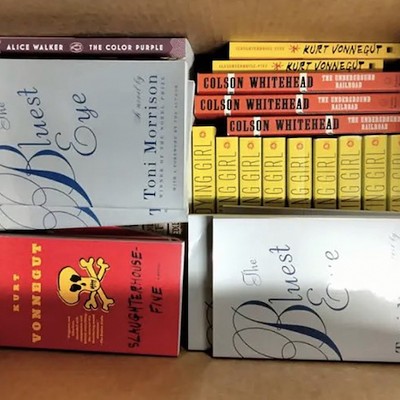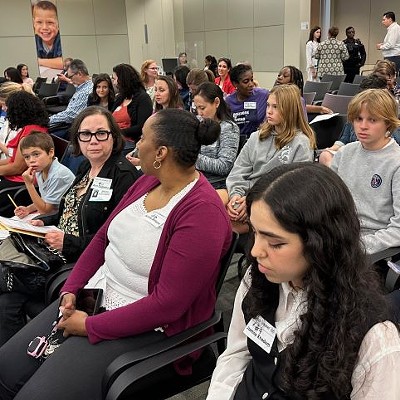In a throwback to the often naïve idealism of the 1960s, Arnold Lockshin, a successful private citizen and not a spy in hot water, defected to the Soviet Union.
Coming practically on the eve of the Reagan-Gorbachecv Reykjavik summit, the Soviets wasted no time in milking the Lockshins on the world stage for all they were worth. Soviet foreign minister Eduard Shevardnadze spoke glowingly of Lockshin, the brave American dissident who no longer wished to cast his lot with Reagan’s America.
Lockshin himself went on Moscow radio and told TASS that he had been fired from the Stehlin Foundation for his socialist, if not communist, views. (The Stehlin Foundation claim it was that the quality of his work had deteriorated.) Lockshin also stated that he was being harassed by shadowy government operatives – spooks were tapping his phone, opening his mail and threatening his wife. Even his kids’ classmates had been enlisted, he said; apparently his children were being unmercifully teased. (The Feds denied the charges; I never saw a confirmation or a denial from the kids at the Lockshins’ schools.) Bourgeois American capitalism was ritually condemned, by both the Lockshins and their new Soviet friends.
Back home, the Chronicle was not amused. In the first of two editorials, the paper slammed his decision thusly: “If Arnold Lockshin prefers Moscow to Houston, we are pleased that he is in Moscow.
Arnold Lockshin will soon enough learn his mistake, and what he has done to his wife and his three children.”
But Lockshin was hailed as a heroic dissident in Moscow. The doctor and his family were given a lavish-by-Soviet-standards furnished apartment in a neighborhood then called Lenin Hills. Lockshin was also given a job at the All-Union Cancer Research Center similar to the one he had held here.
A year later, they went to dinner with a reporter from the Ft. Worth Star-Telegram, and Lockshin and his wife Lauren told the scribe that they were content in Moscow. "We're happy and our kids are happy," Dr. Lockshin said. "The average [Soviet] working person is no different than the average working person in America. They have families, they watch television, they go to work. It's not like moving to another planet."
All they missed from America were Mary Tyler Moore re-runs and country songs such as George Strait’s “Does Ft. Worth Ever Cross Your Mind?”
Eventually, as the Cold War fizzled with a resounding whimper in from 1989 to 1991, Lockshin and his family were all but forgotten. One who remembered them was Texas Monthly reporter Jan Jarboe Russell, who traveled to Moscow to attempt an interview in 1992, only to be rebuffed repeatedly by Dr Lockshin’s surly receptionist. On her last day there, she finally got through on the phone and found Dr, Lockshin to be as full of conspiracy theories as ever.
“The view of the world that he holds on to is not only irrelevant but banal,” she wrote. “Lockshin is a Cold War leftover. He may have imagined himself as heroic and romantic, but as the events of 1989 in Eastern Europe and 1991 in the Soviet Union prove, there is no heroism, no force left in Marxist rhetoric. The Cold War is not something that ended just in Eastern Europe. It ended everywhere. Americans who cling to Lockshin’s ideals are just as obsolete as Russians who cling to the tenets of Marxism.”
And that was that. Arnold Lockshin seems to have faded utterly into history, a weird footnote to a very weird era.
But I always wondered what happened to the Lockshin children. At the time of the family’s defection, Jennifer, the oldest child, was 15 and a student at Bellaire High. Jeffrey, their oldest son, was 11, and their youngest was a five-year-old boy named Michael. (I was a year older than Jennifer, and frankly, a bit of a Commie at the time, so their story resonated with me deeply.)
How do you first make the adjustment from Reagan’s America to Gorbachev’s Soviet Union, from Meyerland to the Lenin Hills, and then re-shift to the free-wheeling Russia of Yeltsin and whatever Russia it is that Putin is running?
Through the power of Google, I was able to sniff out some tantalizing leads.
A Jennifer Lockshin teaches English as a second language at Moscow’s State University Higher School of Economics.
A Jeffrey Lockshin teaches English at the same institution and also, if my reading of the Cyrillic script is correct, was, about five years ago, a candidate for a professorship of mathematics. (He also designs problems for something like the spelling bee of numbers -- the international Math Olympiad -- and used to frequent math newsgroups.)
Michael proved harder to find. A different Michael Lockshin is a celebrated rheumatologist and author based on the East Coast. I sifted out thousands of pages about this Lockshin and eventually found a few promising nuggets.
That two of the Lockshin children became mathematicians and English teachers was no surprise, but I was honestly astonished when I found the guy I believe to be the right Micahel Lockshin. For lo and behold, it appears that the baby of the Lockshin family is now, of all things, a music/pop culture critic and film-maker.
In 2002, in an apparently defunct English-language Russian publication called Lifestyle, a Michael Lockshin penned a preview of the Krylya Rock Fest, starring Russian rock icons Zdob Si Zdub, Multfilmy, Smysloviye Gallyutsinatsii and “the legendary Boris Grebenshchikov.” (Not to mention Iggy Pop on a rare jaunt to Russia.)
There’s another Michael Lockshin article from around the same time that appeared in the Russia Journal. This one was a review of two Skatalites shows. As he discussed the impact of the Jamaican ska pioneers on two divergent Moscow audiences, one nouveau-riche, the other apparently less well-heeled, he showed that the (very red) apple did not fall from the tree.
“The first concert at Restavratsiya, a club geared to the nouveaux riches, was reminiscent of a scene from the America of the 1920s, with poor black jazzmen playing their ‘wild’ music for the prosperous, extravagant white upper classes. Most people were eating and conversing, while a few bopped their heads occasionally. A dozen people, dancing by the stage, embraced the music's sunny essence, but they were in the minority.
In contrast, a crowd of close to 2,000 at Gorbushka (DK Gorbunova) was completely tuned into the groups ‘positive vibrations.’ Jumping, smiling and joking, people in the audience formed Conga lines, learned how to pronounce the exclamation ‘Awwllrrrright!!’ and sung along for more than two hours with Doreen Shaffer, the old-time jazz singer touring with the group.”
In another article, a Michael Lockshin was described as a filmmaker who curated a festival of short films in Moscow and divided his time between that city and London.
So it appears that the Lockshin children avoided the gulag, at the very least. Maybe, just that one time, the Chronicle’s editorial board was a little too tough on the Russkies. – John Nova Lomax






